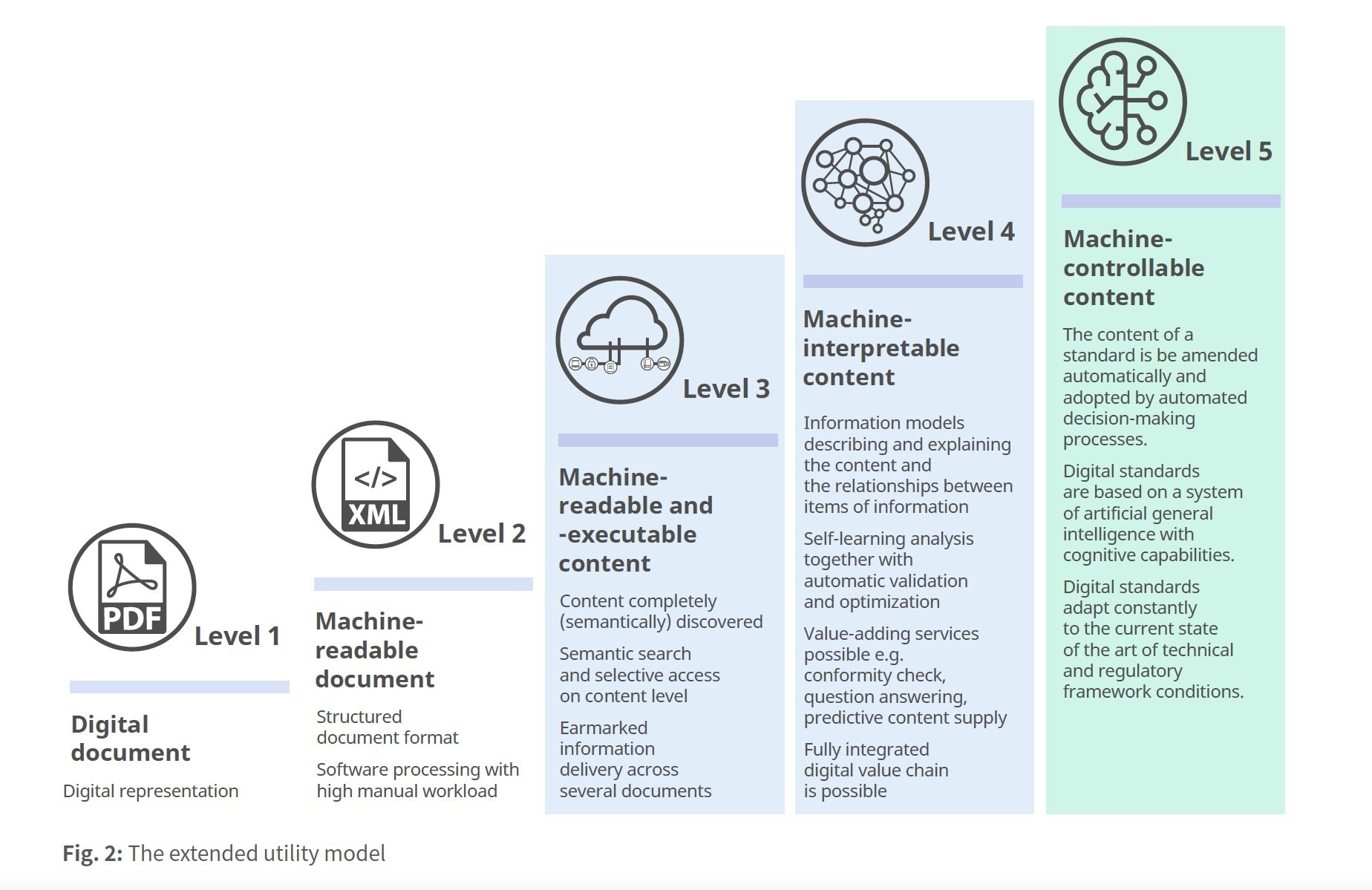Intelligent standards: More than just PDF documents
More on this:
industry-of-things article
material.one – Collaboration with DIN DKE
DIN DKE White paper “Scenarios for Digitizing Standardization and Standards”
The digital transformation of the manufacturing industry is often held back by traditional pdf, Word or Excel files or even paper-based standards. Bernd Löhle, CEO of material.one AG, explains in a specialist article how digital standards can revolutionize the industrial workflow. Digital standards go far beyond simple PDF documents: they are machine-readable, can be easily integrated into applications and enable automated processing.
These new standards considerably simplify and accelerate processes relating to requirements, verifications and approvals, reduce costs, and minimize errors. The benefits are particularly evident in the automotive industry where up to 1,000 factory standards are in use. Digital standards not only facilitate the internal exchange of requirements, but also collaboration with suppliers and laboratories.
Leading automotive manufacturers and other industries are already relying on these innovative standards and have have taken the first steps towards digitalization of standards and support the future visions of standardization. From current practice to future developments in digital standards, this detailed professional article shows how companies can gain a decisive competitive advantage through intelligent standards.
More on this:
industry-of-things article
material.one - Collaboration with DIN DKE
DIN DKE White paper “Scenarios for Digitizing Standardization and Standards”
Read more articles
Our articles offer quality, production and laboratory managers valuable insights to successfully drive the digital transformation within their companies.
Learn more about material.one
With material.one all stakeholders can collaborate a standardized manner in a compliance conforming way based on the "need to know". As an industry cloud platform, material.one provides information on material and material sampling, percentage of recycled material, certificates as well as CO₂ footprint information.


